A Worrying Discovery about our Monarch
The U.K. has a self-confessed atheist as Prime Minister, something that would never have seemed a possibility even a decade ago. it is a frightful commentary on the ungodliness of our much favoured nation; a nation blessed of God, perhaps blessed more than any other; with a heritage of godly men and women down through many centuries; many of whom have left an indelible influence on the believing people of God found within its boundaries. We have a wealth of precious literature based on the Spirit-breathed Word of God. Along with a treasury of beautiful Christ-honouring hymns.
Now I find that our present King, Charles 111 is I suggest at best a humanist, at worst an idolater. Many of my brethren have somehow concluded that he is a Christian. How they can come to such a conclusion on the basis of his disgraceful behaviour, publicly aired, I cannot fathom.
But today I discovered an article which leaves me candidly horrified and I make no apology for pointing this article out and pasting some of its content to this "Post."
Under-linings for emphasis and context are all mine.
It wasn't exactly a run-of-the-mill royal occasion.
In the sunny gardens of the Highgrove estate, I stood in a circle with King Charles and an eclectic group who were attending his first "Harmony Summit".
We raised our arms in honour of nature as we stood around a fire, which was burning within a ring of flowers.
Presiding over the fire ceremony, in which we rotated as we honoured the north, south, east and west and then Mother Earth, was an Indigenous leader - an Earth Elder - wearing a headdress and a dazzling robe of blue feathers.
A conch shell was blown. Butterflies flew around the flowers. And, in a concession to modernity, as well as holding up feathers in a blessing for the King, the elder was reading his incantations from an iPhone.
The summit was a celebration of the King's philosophy of harmony with nature - an inaugural event that the King's Foundation hopes will become a regular gathering.
It brought together representatives from Indigenous peoples, including from tribes in the Amazon, along with environmentalists, climate campaigners, organic farmers, herbalists, educators, crafts people and philanthropists.
There were other visitors from Amazon too: a film crew from Amazon Prime, making a documentary for next year, who were poring over every moment as the sacred smoke coiled up over the apple trees in Gloucestershire.
The King, in a light summer suit, spoke a few quiet words of welcome, wearing a circlet of feathers and a scarf that had been draped ceremonially around his shoulders.
A humane, ruminative, humorous and quietly radical figure, he was at the centre of what he hopes will become the first of many such gatherings.
But it raised the question - and perhaps opened a window - into what the King believes. What is this thoughtful man really thinking about?
Harmony is the King's philosophy - it means that we should be working with the grain of nature rather than against it. Or "her", as he describes nature in his book on the subject, published in 2010.
It's about the inter-connectedness of all life, infused with a strong sense of the spiritual, and the idea that the human and natural worlds can't be separated.
It's the philosophy that stitches together his many different pursuits - on the environment, climate change, sustainable farming, urban planning, architecture, protecting traditional craft skills and building bridges between different faiths.
According to a source close to the King, it's "perhaps the single most important part of his eventual legacy", bringing together different strands of his work that might seem separate into "one philosophical world view about creating a better, more sustainable world for future generations".
In his book, Harmony - A New Way of Looking at our World, the King describes his purpose as a "call to revolution", and writes that he recognises the strength of the word.
His book moves from the importance of geometry, with patterns rooted in nature, to the designs in Islamic art and the inspiring dimensions of Gothic cathedrals.
A sense of the sacred in nature, as well as in people, seems to be an important part of this world view.
At lunch at the Harmony Summit, grace was said by the Bishop of Norwich, Graham Usher.
The King's idea of harmony dovetailed with a very deep personal Christian faith, he said.
"My sense is that he draws much of his energy and ideas from spending time in prayer and contemplation," said the bishop.
He said the King sees his role as serving others and a sense of this "is seen in how he is always keen to learn from other religious traditions, building bridges and fostering good relationships built on respect and understanding".
Within strands of Christianity, the King is also said to be have been interested in the Orthodox faith and its use of icons.
A fire was lit within a ring of flowers
The focus of this inaugural Harmony Summit was drawing on the wisdom of Indigenous people, tapping into their knowledge and pre-industrial ways of working with nature.
Survivalist Ray Mears was there to welcome representatives of the Earth Elders group, who work to defend the rights of "original peoples", who have become the threatened guardians of the natural world. They were wearing traditional headdresses, face paint and ornaments, in among the flowers and trees of Highgrove.
"People's selfishness has taken them away from nature. They can't feel the breeze, they're too focused on the clock," said Mindahi Bastida, of the Otomi-Toltec people in Mexico.
The cacophonous modern world has broken our connection with nature, said Rutendo Ngara, from South Africa. She described our era as a time of "loud forgetting".
"It's well-being for all human beings, all living beings, visible and invisible, it's Mother Nature… Everything is connected and there's mutual respect."
These were people from forests and rivers who talked of the destructive pressures on them, from mining, oil and urbanisation.
Ailton Krenak, from Brazil, talked of rivers that that had been "erased by money" and seeing the dried-up, polluted waterways was like a much-loved "grandfather in a coma".
Rutendo Ngara described our era as a period of "loud forgetting"
Highgrove, winningly wobbly with its crooked tiles and trees growing through holes in the roof of a shelter, is a lyrical sight on a summer's day. It's a model of harmony with nature.
How does that message work, when you step outside into an often angry, noisy and brutal world?
What makes the idea of harmony relevant, is that it puts ideas into practice, it's not just a "thought exercise", said Simon Sadinsky, executive education director at the King's Foundation, which teaches crafts skills to a new generation.
"It's not just a theoretical concept, it's not just a philosophy, it's grounded in practice," he added.
"There's a lot of awfulness going on in the world, it's hard to stay optimistic. You can feel completely powerless," said Beth Somerville, a textile worker who completed a King's Foundation course.
But she says the idea of "harmony in nature" inspires her work and helps to create things which can be both beautiful and functional, in a way that is "all connected".
"It does drive me to carry on and have hope."
I trust you will see why I have felt it necessary to inform a larger audience with this information. The departure from even a semblance of Christian values hastens on at an alarming pace. May our God have mercy on a ungodly and ungrateful nation, would it please Him. T.W.
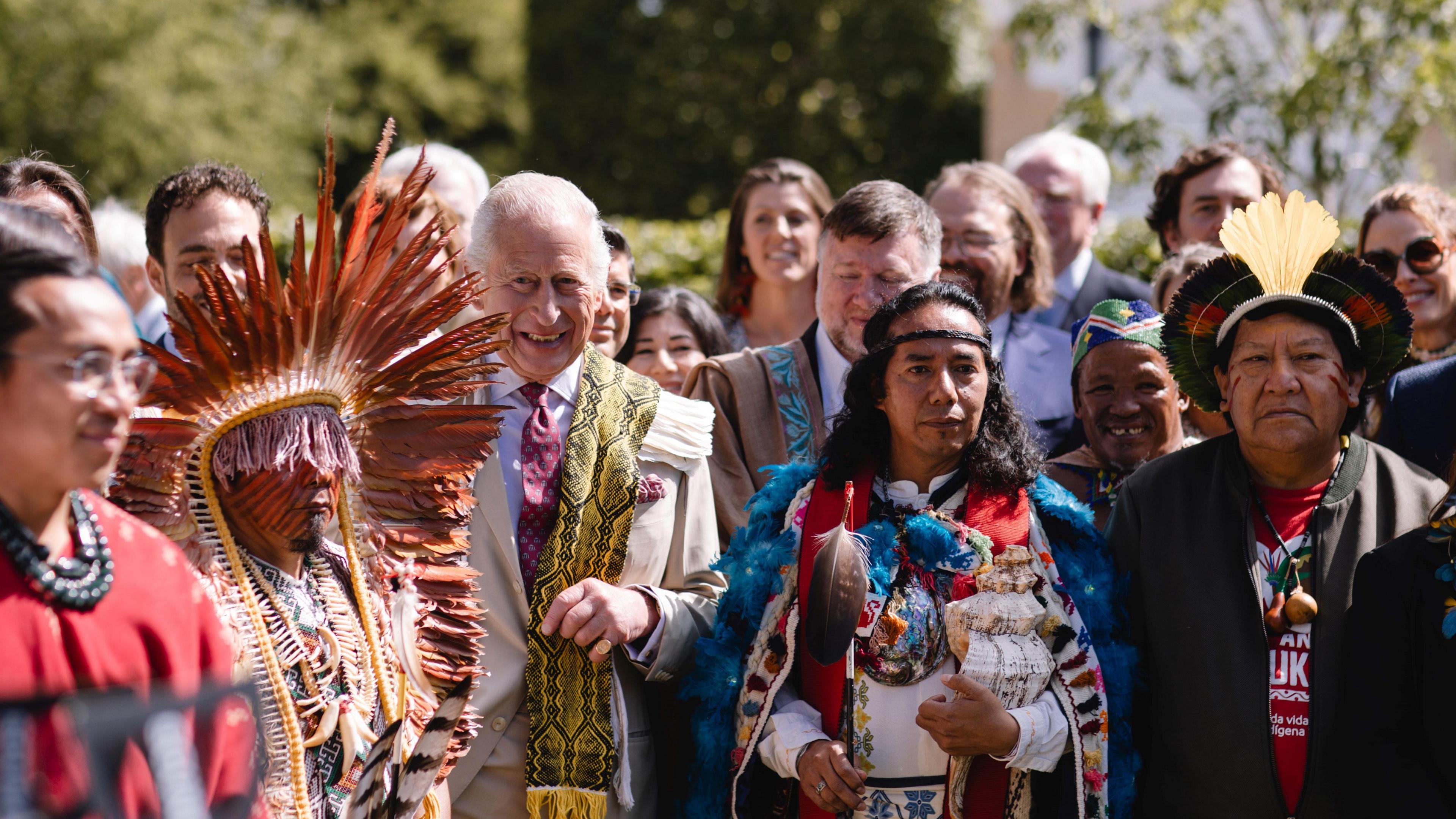
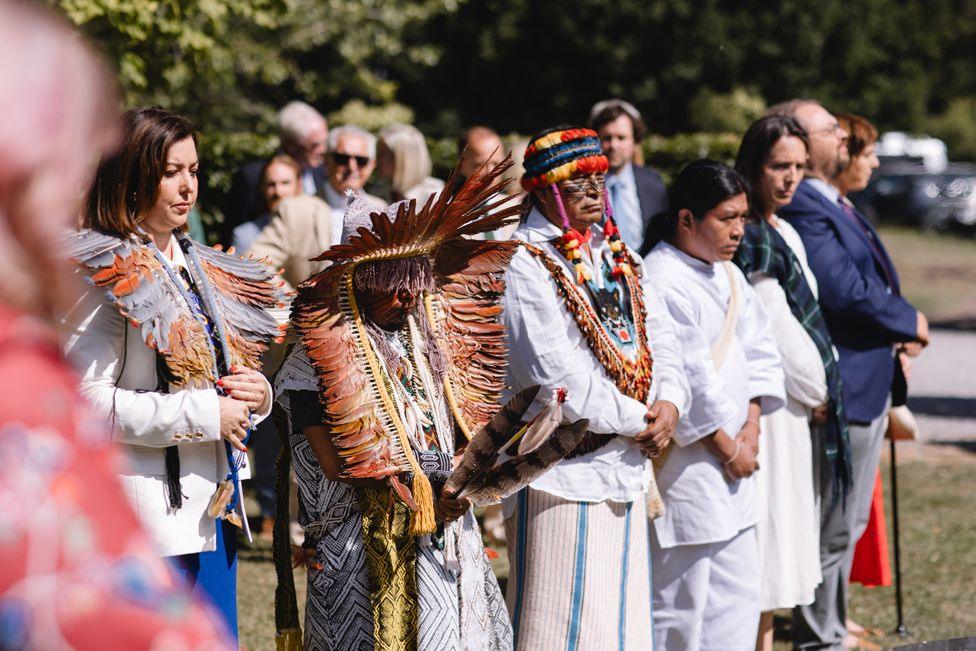
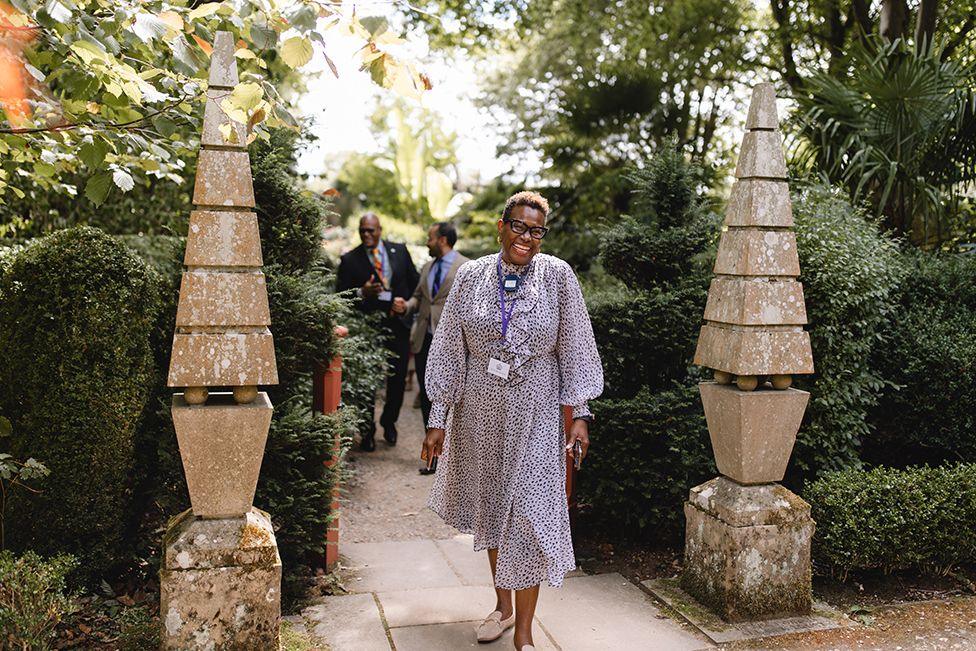
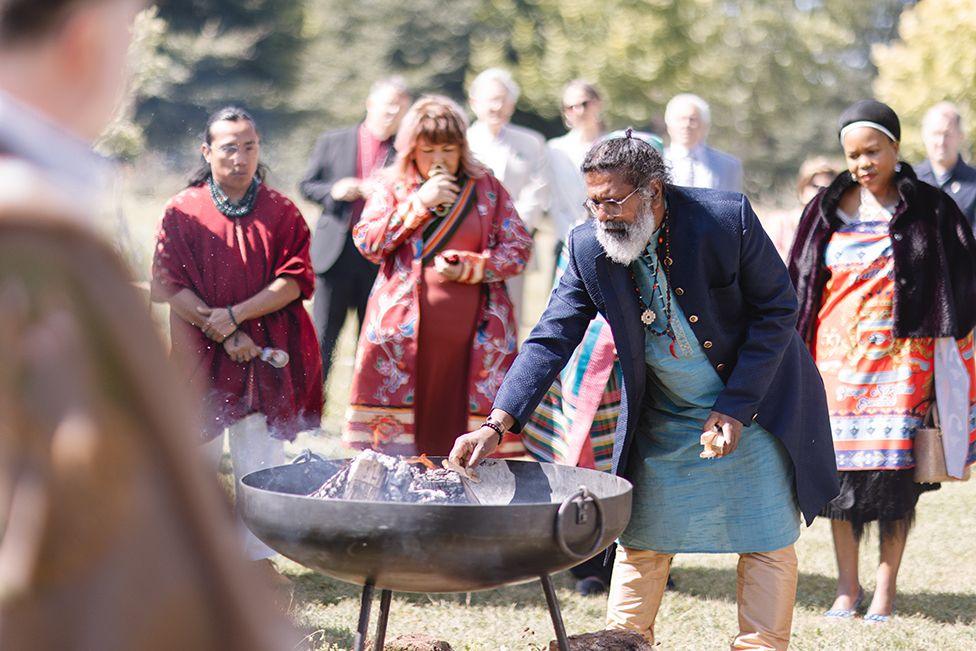
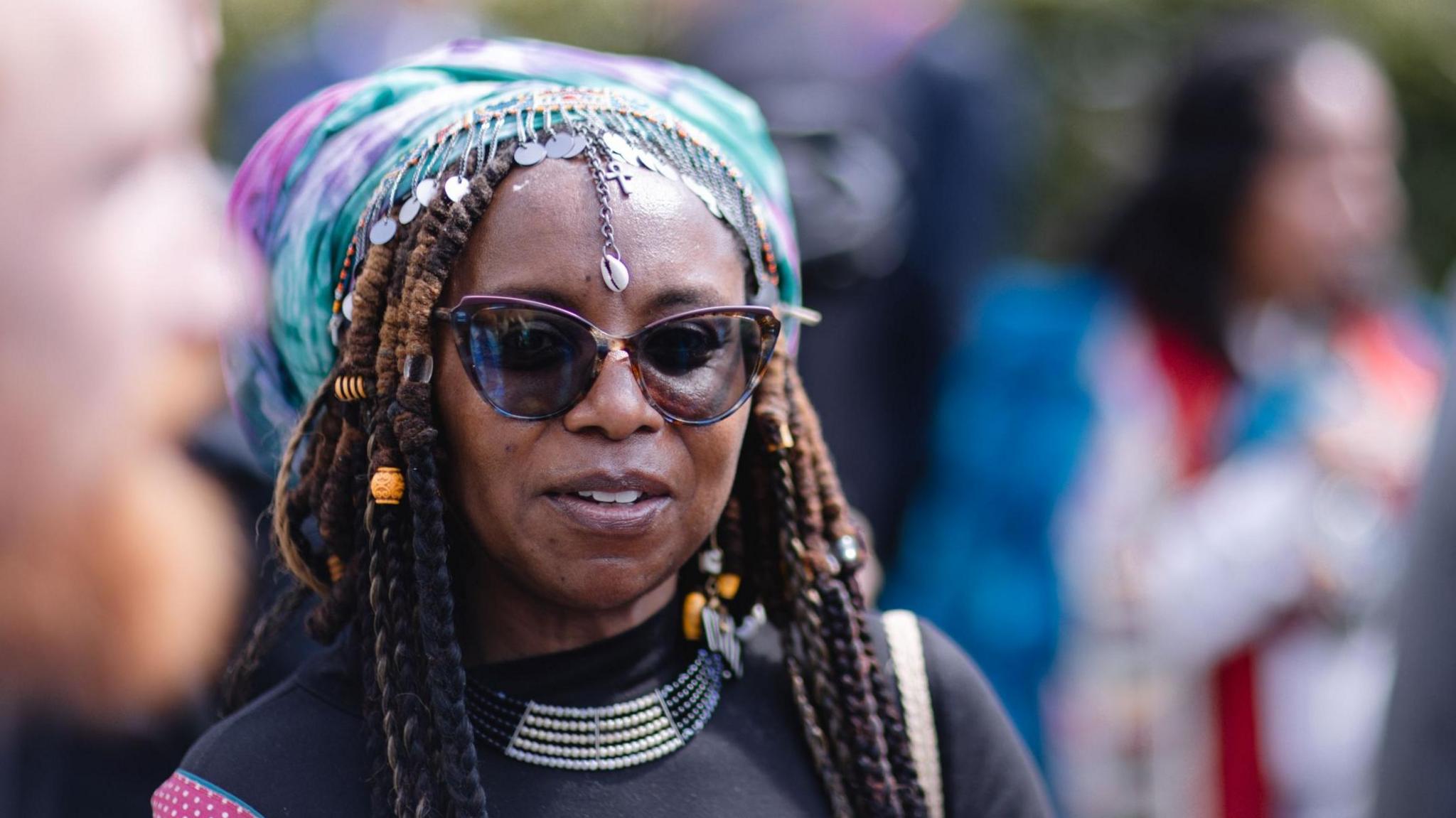
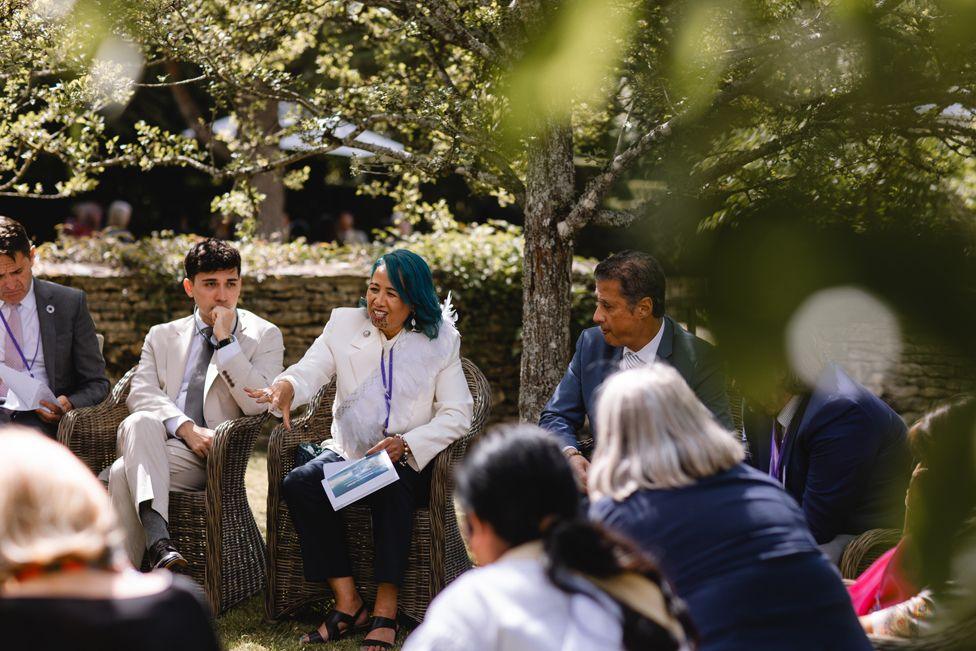
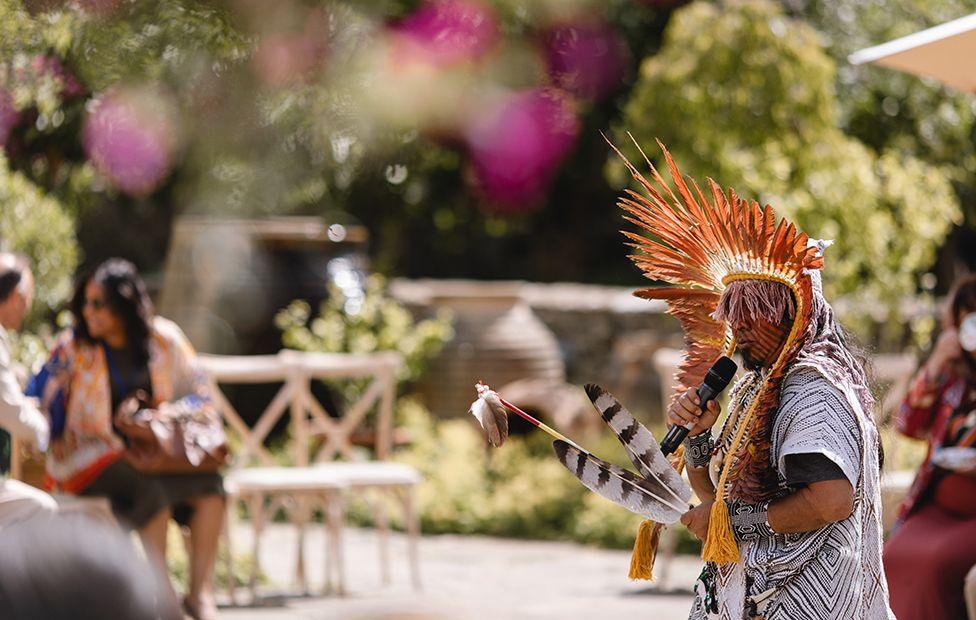
No comments:
Post a Comment